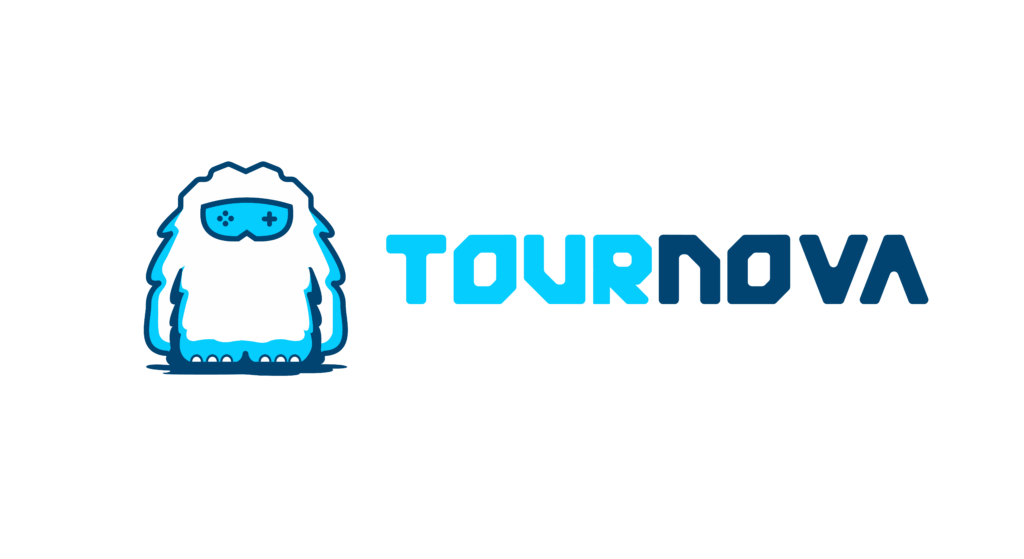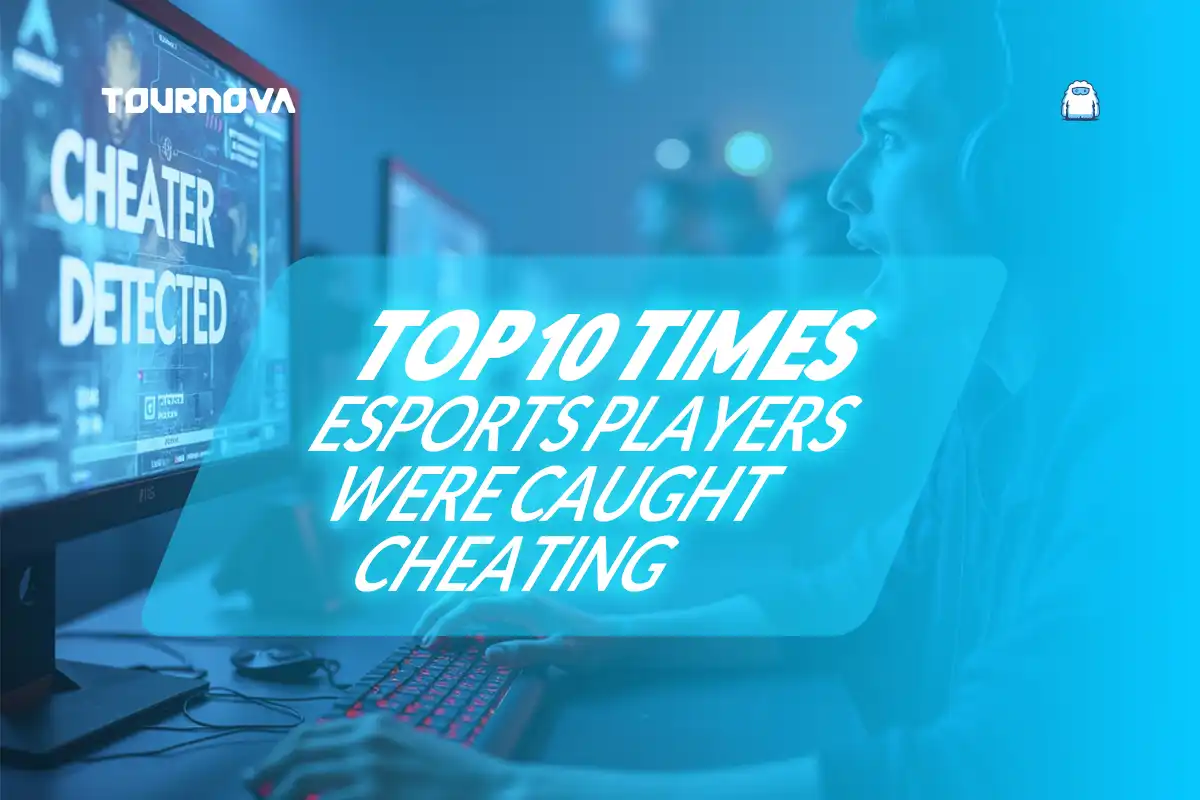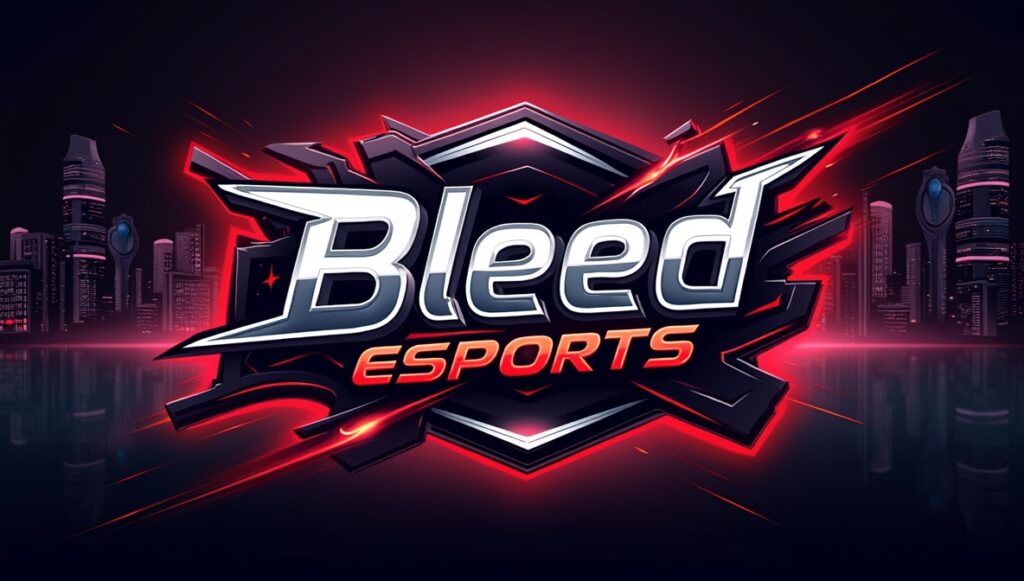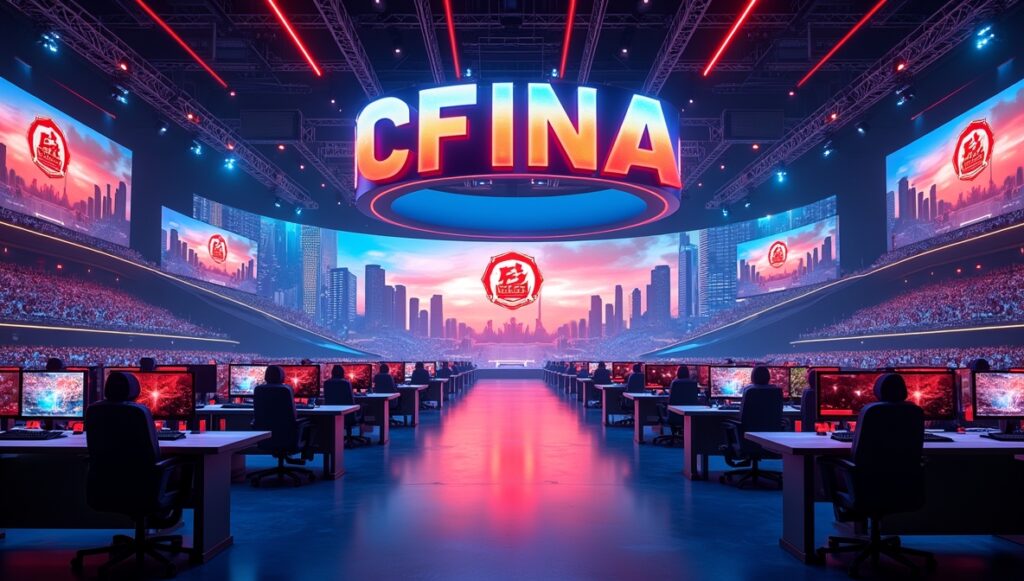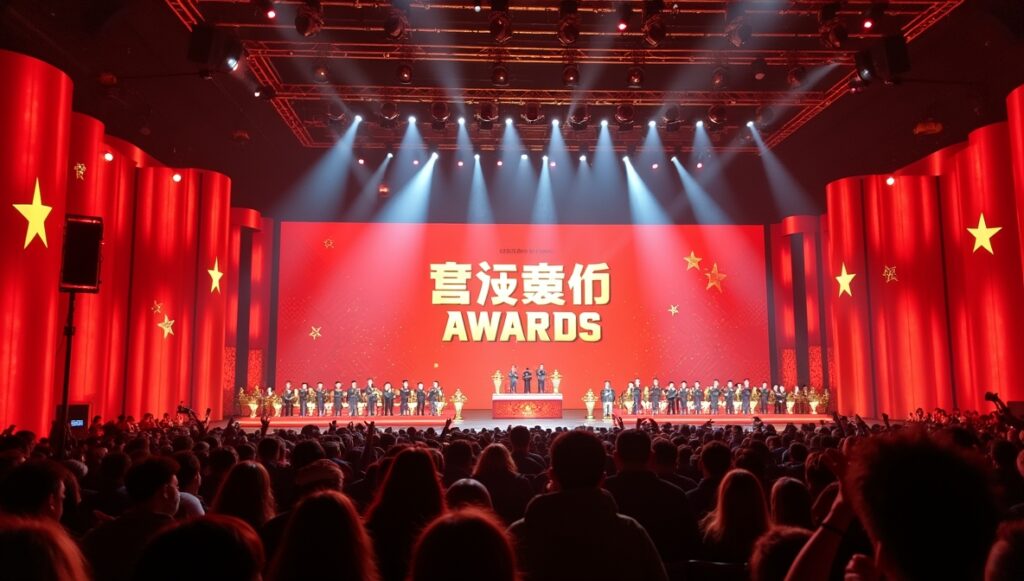In the high-octane world of esports, where precision and skill define champions, the concept of cheating casts a long and troubling shadow. Imagine dedicating countless hours honing your skills, only to discover the competition was never fair. The integrity of esports hinges on fair play, yet cheating scandals have repeatedly rocked the community, undermining trust and tarnishing reputations.
These incidents leave fans and players alike questioning the legitimacy of accomplishments and sowing doubt in a field that thrives on transparency. But rest assured, as we delve into the most shocking cases of esports players caught cheating, we’ll provide insights on how the industry is evolving to combat these setbacks, reaffirming our commitment to thrilling, honest competition.
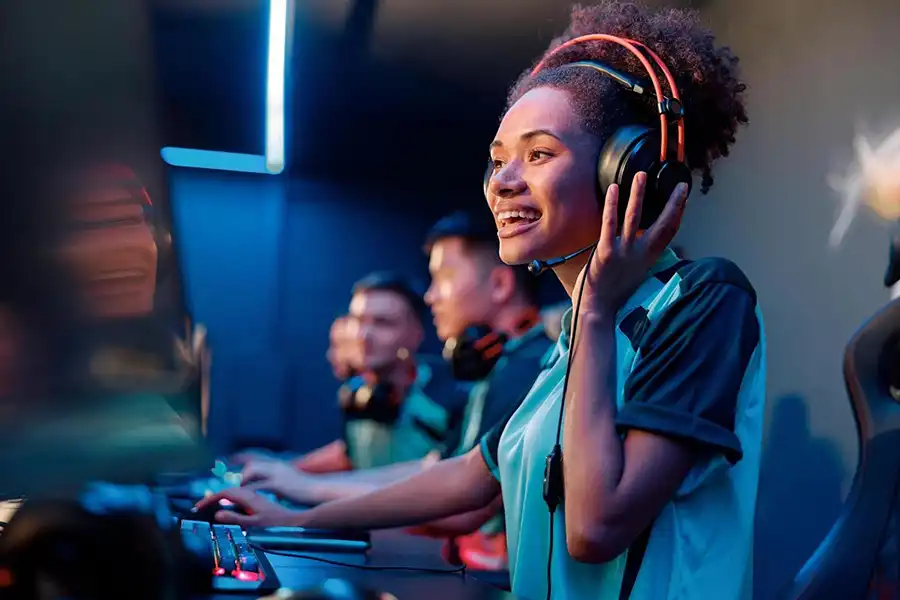
Cheating in esports isn’t a mere footnote; it’s a complex issue that has punctuated the evolution of competitive gaming at every level. Once considered an unfounded concern, cheating scandals now make global headlines, shaking the foundation of competitive gaming. These scandals unveil vulnerabilities not only in-game security but also in the moral fiber of competitive players.
Why does it happen? The pressure to succeed and the allure of fame can push talented players to compromise their values. The outcome? A breach of trust reverberates through the gaming community, diminishing the thrill of watching or participating in these events. Understanding these stories is crucial as they serve as cautionary tales in the ongoing battle for integrity in esports.
Top 10 Most Shocking Esports Players Caught Cheating
Here, we’ll dive deeper into the infamous cases of cheating in esports that shocked gaming communities around the world. Each story serves as a reminder of the fragility of trust and the immense pressures within competitive gaming.
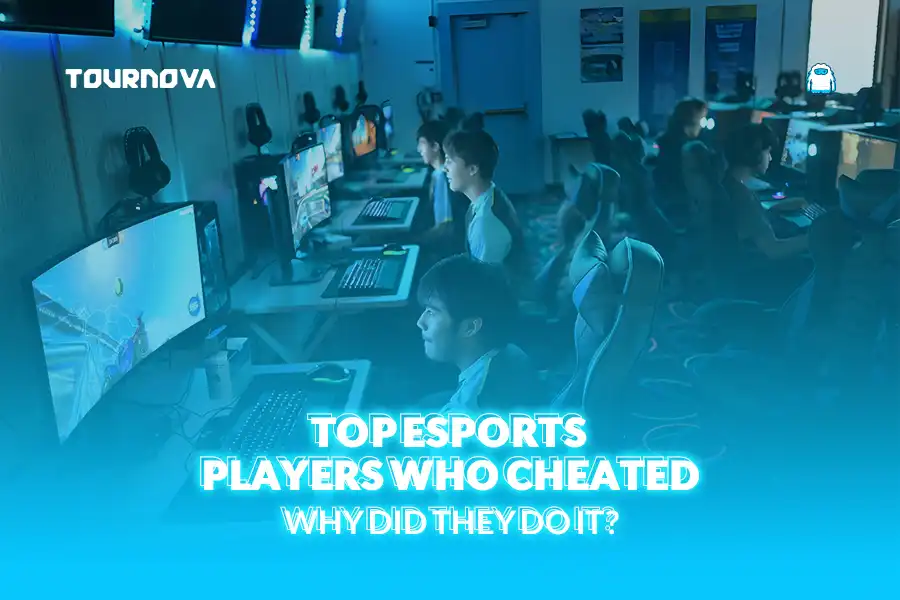
Forsaken (CS:GO)
Nikhil “Forsaken” Kumawat’s cheating scandal remains one of the most brazen in esports history. During the Extremesland Zowie Asia tournament in 2018, Forsaken was caught using a controversial aim-assist software cleverly disguised on his computer. The tournament’s administrators, suspecting foul play due to his seemingly unnatural performance, conducted a real-time investigation. Their search led to a notorious moment when Forsaken tried to delete the file right before their eyes, cementing his fate.
This incident not only led to immediate disqualification but also resulted in his team, OpTic India, being disbanded. Forsaken’s actions dealt a significant blow to the credibility of Indian esports on the international stage.
Azubu Frost (League of Legends)
The 2012 League of Legends World Championship was marred by an unexpected scandal involving Azubu Frost. During a critical match, a member of their team was caught looking at the giant screen displaying the game’s minimap—an act that provided an unfair advantage by revealing enemy positions. Although Azubu Frost claimed it was an accident, the incident ignited outrage in the community and resulted in a hefty fine regarding esports players caught cheating. This event highlighted the need for better on-stage protocols and reinforced the importance of fair play in emerging esports tournaments.
Jonathan Kosmala (Fortnite)
Jonathan Kosmala, once a celebrated young prodigy in Fortnite, found himself at the center of a cheating controversy during the Fortnite Cash Cup. He was accused of “teaming,” which involves cooperating with other players in solo matches to gain an advantage, strictly prohibited in competitive gaming. Although Kosmala initially denied the allegations, video evidence clearly showed coordinated movements with another player. His actions sparked a broader conversation about the thin line between collaboration and cheating in battle royale games, ultimately leading to his disqualification and a suspension from competitive play for six months.
We have released Johnathan Kosmala from our Fortnite team.
— Team Kaliber (@TeamKaliber) April 14, 2019
We are shocked to learn that he was cheating during the World Cup Qualifiers.
This violation is serious and we have ended our relationship with him. We apologize to our supporters for his lapse in judgement.
Read More: Can You Really Make Money Competing in Esports Tournaments?
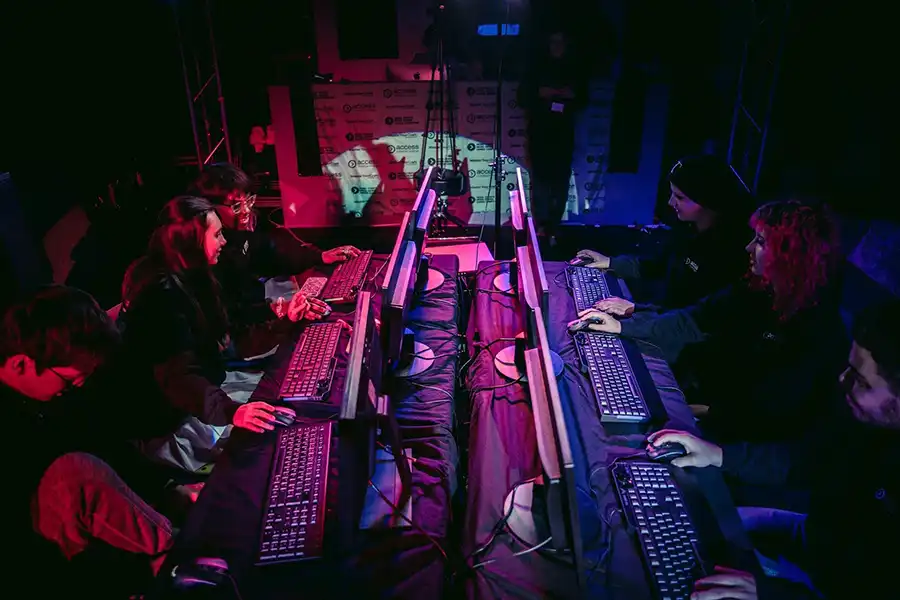
Flex (CS:GO)
Flex, a rising star in the Counter-Strike: Global Offensive community, saw his career take a downward spiral after accusations of cheating through unauthorized software. Like many others, he fell victim to the allure of quick success, choosing shortcuts over hard work. The detection of his cheats during a crucial match illuminated the persistent challenge of maintaining integrity in online competitions. The case of Flex underscores the ever-evolving battle between cheat developers and the developers of anti-cheat systems.
KiD x (Overwatch)
KiD x, a name that once resonated with potential in the Overwatch League, experienced a dramatic downfall due to cheating allegations among the esports players caught cheating. Although his ascent in the rankings was initially celebrated, it quickly came under scrutiny. Evidence of using hacks to enhance gameplay became public, forever casting a shadow on his achievements. The damage to his reputation was irreparable, illustrating the severe consequences of prioritizing short-term gains over long-term integrity.
Life (Starcraft II)
Lee “Life” Seung Hyun, a Starcraft II prodigy, shocked fans when he was embroiled in a match-fixing scandal in 2015. Known for his aggressive play style and incredible strategic acumen, Life was arrested for conspiring to fix matches in exchange for illicit payments. This scandal rocked the Starcraft II community, particularly in South Korea, where the game holds a revered status. Life’s fall from grace underscored the influence of illegal gambling in esports and led to significant changes in how tournaments address and prevent such issues.
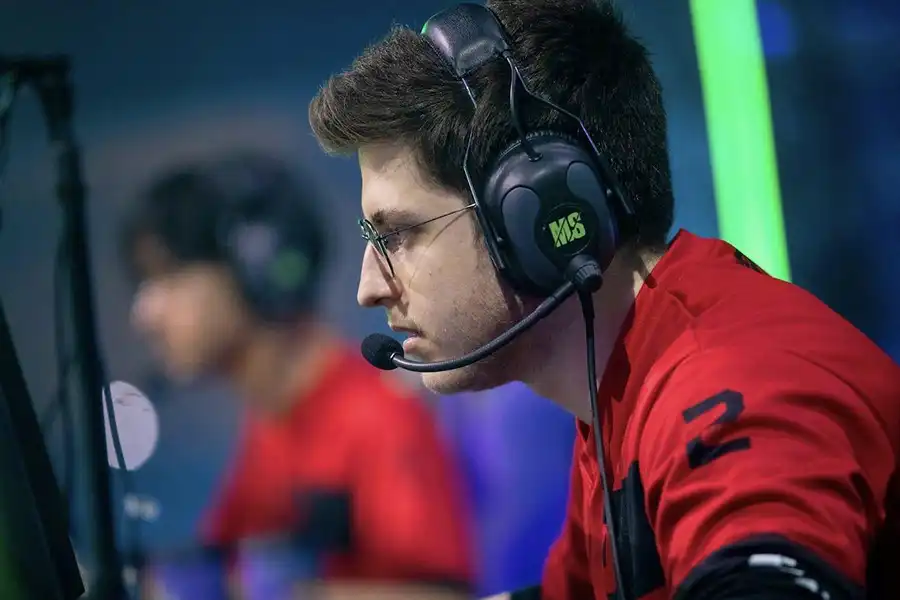
Solo (Dota 2)
Alexei “Solo” Berezin’s involvement in a match-fixing scandal in 2013 marked an infamous chapter in Dota 2’s history when it comes to esports players caught cheating. He placed a bet against his team and deliberately lost the match to cash in on the wager. The scandal resulted in a lifetime ban, later reduced, allowing Solo to eventually return and prove his worth through clean play. His story is one of redemption and serves as a testament to the fact that integrity, once lost, requires tremendous effort to regain.
Ryno (Halo 5: Guardians)
Ryno, a competitor in the Halo 5: Guardians scene, faced an abrupt career halt due to cheating allegations. His use of aim-assist tools was exposed during a major tournament, leading to immediate disqualification and community backlash. Ryno’s case highlights the personal and communal fallout that accompanies such scandals, reminding us of the trust quintessential between players and spectators in esports.
D1ablo (Call of Duty 4: Modern Warfare)
D1ablo’s story is a cautionary tale about the pressures of competitive Call of Duty. Known for his agility and precision, his integrity took a hit when he was caught using performance-enhancing software. This discovery not only ended his competitive pursuits but also shattered the trust of fans and sponsors. The scandal emphasized the necessity for constant vigilance within competitive games to preserve their fairness and excitement.
Sado (Overwatch)
In the early stages of his promising career, Se-Hyeon “Sado” Kim faced allegations of using boosting services, an unethical practice where players pay others to increase their ranking. His suspension from competitive Overwatch competitions demonstrated the strict approaches taken by organizations to maintain integrity and discourage any form of unfair play. Though Sado later returned to play professionally, his story remains a reminder of the enduring impact of early career choices.
These stories, emblematic of the risks and repercussions of cheating, continue to inspire stricter measures and technologies designed to preserve the integrity of esports. Each case serves as both a warning and a catalyst for change, driving the community towards a deeper commitment to clean and fair play. The hope is that with continued vigilance, esports can rise above these challenges, fostering an environment where genuine skill and sportsmanship are the true measures of success.
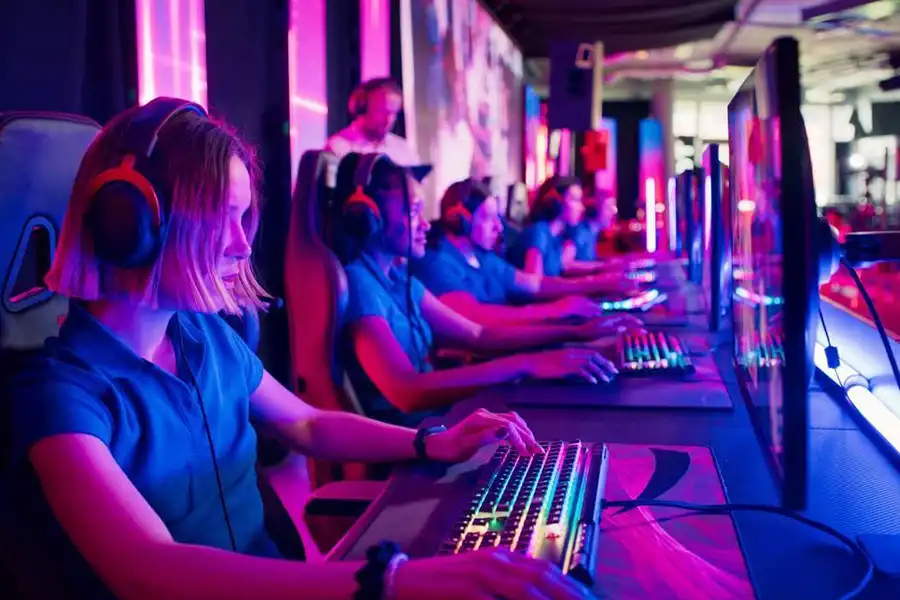
Read More: How Much Do Esports Players Make?
The Impact of Cheating on Esports Careers
The repercussions of being caught cheating in esports are severe and far-reaching. Careers are often not just paused but irrevocably damaged. The immediate aftermath generally includes suspensions or lifetime bans from tournaments, stripping players of their professional status and sponsorships. The legal landscape can also come into play, particularly in cases involving match-fixing, with players facing fines or even legal action. Reputation loss often extends beyond individual players, affecting teams and sponsors, creating a ripple effect that emphasizes the significance of clean competition.
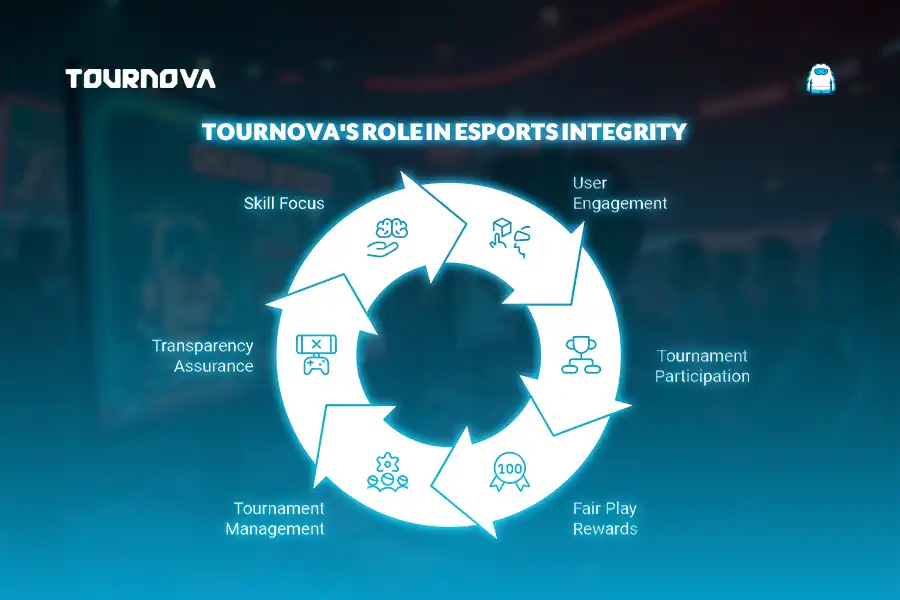
Tournova: No Cheating Allowed
As the esports landscape continues to grapple with issues of cheating and integrity, platforms like Tournova emerge as vital players in fostering a fair and engaging competitive environment. Tournova offers a user-friendly interface through its mini-app on Telegram and a Discord bot (to be released), allowing gamers to participate in free and cash tournaments while rewarding fair play through an innovative token economy. By providing tools for seamless tournament management and ensuring transparency, Tournova encourages both players and organizers to focus on skill and integrity rather than shortcuts. As new players enter the competitive scene, engaging with platforms like Tournova not only enhances their experience but also contributes to a culture of accountability and sportsmanship in esports.
Moving Forward: Can Esports Recover from Cheating Scandals?
In response to these issues, the esports community has ramped up efforts to ensure fair play through advanced anti-cheat measures and stricter regulations. Organizations are investing in robust technological solutions to detect irregular gameplay patterns, and tournament hosts enforce rigorous checks. The community itself plays a pivotal role in dealing with esports players caught cheating, with fans and players advocating for transparency and accountability. As technology advances, so do the strategies to counteract cheating, leading to more secure and thrilling competitions.
FAQ
What are common signs that a player might be cheating in esports?
Cheating can manifest in unexpected improvements in player performance, suspicious game patterns, or the use of unauthorized software. Tournament organizers and anti-cheat systems typically have protocols to monitor and detect such anomalies.
How do esports organizations prevent cheating during tournaments?
Organizations use advanced technology to detect cheating, such as software that monitors player behavior for anomalies or suspicious activity. They also employ physical measures, such as control over player equipment and random checks.
Can a player recover their career after being caught cheating in esports?
While it’s challenging, some players manage to redeem themselves through transparency, education, and demonstrating clean play over time. However, the stigma can be difficult to overcome.
